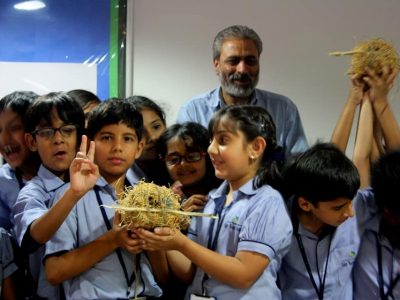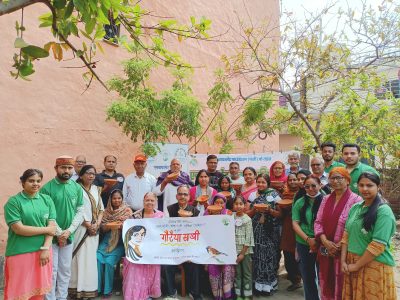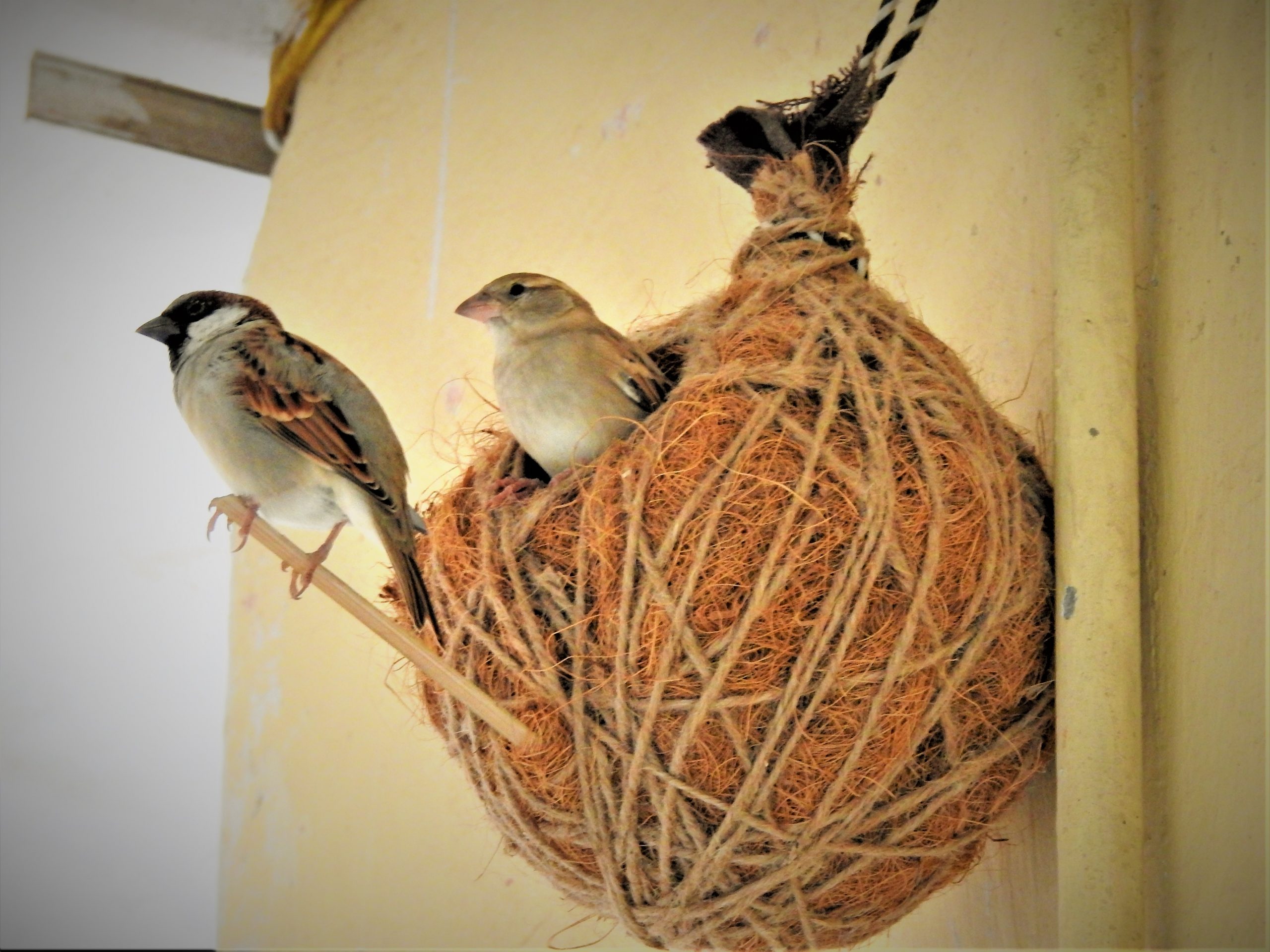World Sparrow Day, observed on March 20 every year since 2010, has brought public attention to the decline in sparrow population and the threats faced by this specie which is important for the ecosystem.
It has also encouraged and provided opportunity to many people to take action to protect sparrows.
Delhi-based Rakesh Khatri, who has dedicated his life to the conservation of sparrows, took the initiative in 2008 with 20 nests. With the rise in awareness, his project has now turned into a movement with over seven lakh nests as of March, 2024.
“Initially people mocked me, but I get a lot of support today. The rate of adoption by birds of nests made by me is around 80%. I take around 45 minutes to make a nest with a kit. In school, children make it under my supervision and place them. When birds are adopted, they send the pictures to me, which gives me great satisfaction,” said Khatri, who has organised over 5,000 workshops, helping over 14 lakh attendees directly to make nests. He has won many awards for this work and is therefore called the ‘nest man of India’.

Khatri was used to seeing birds and nests on the rooftop of his house in Chandni Chowk. However, he had to leave the place after the death of his father. The lack of birds in Ashok Vihar due to the presence of high-rise buildings greatly upset him.
“So, I felt restless,” he said before adding that he began making nests with coconut shells.
Green coconut, which was being imported from south India, had become popular around that time in Delhi.
“I took 40 coconuts at first and made nests with the help of newspapers and flowers of grass. We thought it would work but when we checked, we got disappointed. The first 38 nests were all empty. But I saw two birds with two chicks in the 39th nest. I saw a ray of hope,” recalled Khatri, who is also the Founder & Managing Trustee of Eco Roots Foundation.
Khatri has also shot documentaries on environment.
“I had joined the then Chief Minister Sheela Dixit in 2007 and began organising environment classes for children at her home. In 2008, I started making nests from bamboo sticks. I made 20 nests and wanted to put them all at a home in Kondli near Mayur Vihar.”
He placed a nest there and was hopeful initially, visiting the place with his camera for three successive days. However, no birds came to occupy that nest.
“On the fourth day, I thought that if the birds don’t come today, I will give up this work. At last, a male sparrow arrived but flew away after some time. It then returned with a female sparrow. I felt the mission was successful. We then put all the nests there and after three days, they all were adopted by birds.
Positive feedback
Khatri has been recognised by various publications, who have dedicated a chapter on him in the EVS (Environmental Studies) books for both CBSE & ICSE boards.
“We have completed seven lakh nests across India this year. I do workshops in schools, with communities, corporates among others. I generally travel for 18 days every month for this. The situation of sparrows has improved, they have come back to nests.”
Khatri has won several national and international awards for this work including the National Science Award 2020-21 by Department of Science & Technology, Government of India; Shining World Compassion Award by The Supreme Master Ching Hai International Association, Taiwan; Social Leader of the Year Award 2022 by Social and Business Enterprise Responsible Awards (SABERA) 2022; Green Leadership Award 2023 by India CSR Network; Earth Day Network Star by Earth Day Network – India in 2020 besides being mentioned in the Limca Book of Records twice.
Talking about the problems faced by sparrows, Khatri said that people have stopped accommodating birds and lack empathy towards them.
“They couldn’t come to terms to the new home structure. The biggest mistake is that we don’t give importance to birds, which were our friends during our childhood. We have disturbed its food chain by using packed food.”
Khatri explained the benefits of having sparrows in the environment.
“Sparrow is the best barometer of environment. It is very helpful and eats insects. If any bird becomes extinct, it is surely a loss to nature and the cycle also gets disbalanced.
“I want to give a message to the community that sparrow is like our child and we should save and protect it. Nature is a ‘bank’; when we withdraw, it becomes empty. We should at least put a bowl of water near our home for the bird. We should make our children aware of it. Nature doesn’t need us but we need nature. Providing shelter to someone in need gets you blessings, I have also earned many blessings.”
Other initiatives
Khatri is not alone in the effort to save the sparrow. A group of students have formed an Environment Club in Ghaziabad to make people aware of the sparrow and environmental challenges. This club works on sanitation, plantation, and creating awareness. Around 15 students are actively involved in this work. Vishal, a PhD student of history, coordinates the group here.
“Sawan (a student) started this club in Meerut, then extended it to Ghaziabad. We started this campaign in 2019 from Modinagar. One programme is called ‘kaha gayi mere aangan ki gauraiya’.

“We conduct a programme on World Sparrow Day in which we visit the nearby areas to make people aware of it, so that they can create a gauraiya-friendly environment near their homes, put water in clay bowls among others. We give titles like ‘gauraiya sakhi’ and ‘gauraiya mitra’ to those who become part of this initiative.”
Members of the Environment Club recently organised a programme and distributed some clay pots.
“Actually, the number of birds is going down. Now we don’t hear as many voices of birds in the morning as we used to hear earlier. And we know that if anyone misses anything in this cycle, then the circle of nature gets affected. That is why we are creating awareness programme,” Vishal added.





